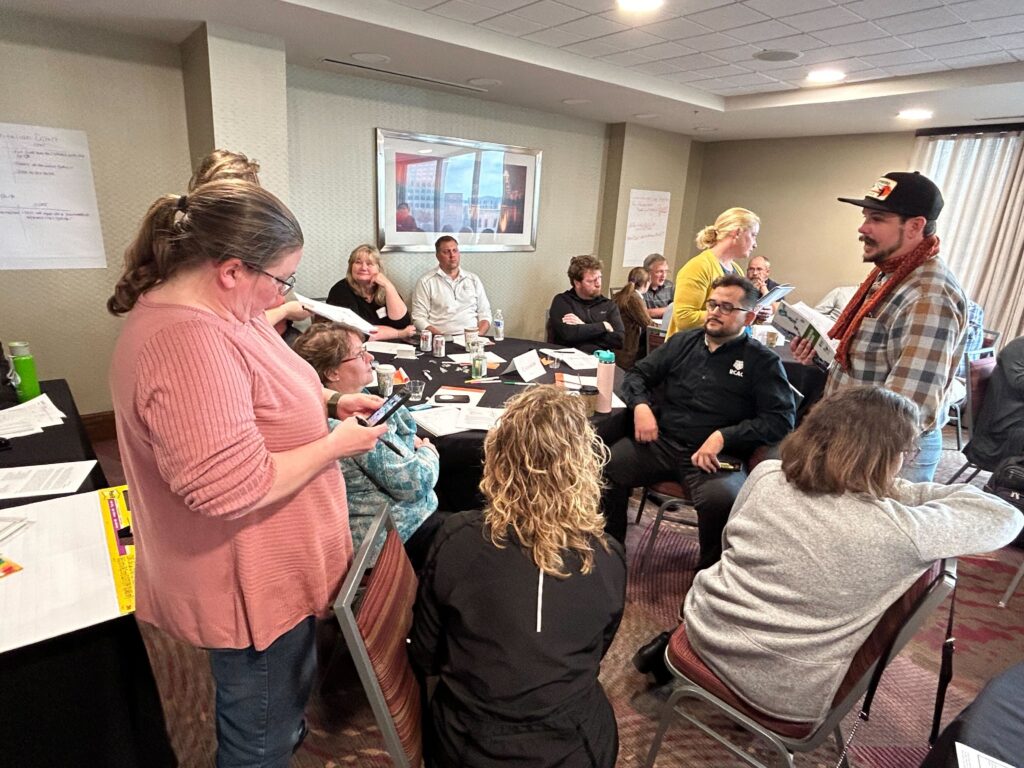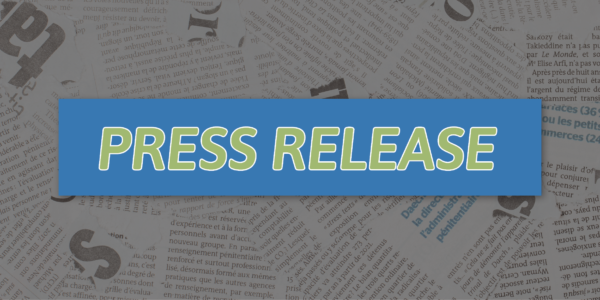RCAP Staff Train on Walking Communities Through Regionalization
Twenty-three RCAP regional staff attended a 2-day, in-person regionalization train-the-trainer event in Austin, TX. This event was the first of four train-the-trainer events that will be provided through RCAP’s Environmental Finance Center (EFC) grant in Years 1-2.
RCAP EFC + regionalization
RCAP has prioritized its EFC work into 7 major technical assistance (TA) areas: Regionalization, Tribal, private well/unsewered communities at risk for public/environmental health, non-traditional systems such as manufactured homes, schools and non-community systems, lead, emerging contaminants such as PFAS, and stormwater. Regionalization is very important for the small, rural communities in which RCAP works. There are over 150,000 public water systems throughout the United States and it is difficult for many of them to continue to sustain themselves due to an array of challenges such as climate change, workforce, new regulations, ageing infrastructure etc. so regionalization is an option for them to consider. This training event focused on how to walk communities through regionalization. Looking at the many difficulties of partnering with other communities, combining financials, and learning how to share responsibility/power were all major topics.
RCAP has provided numerous regionalization 101 trainings to its TA providers across the country to understand the basics, but the field asked for more—once we get communities to the table, how do we implement/execute?
 Attendees had the privilege of learning from some of the most experienced facilitators at RCAP on this topic as well as Rogue Water Lab. Olga Morales Pate, RCAP’s CEO, has over 25 years of experience working with communities in the southwest including pioneering the forming of collaborative regionalization projects. Sarah Buck, Chief Programs Officer, has spent countless hours working with small and rural communities on understanding regionalization and forming ways to use regionalization as a tool for resilience. Ami Keiffer, Environmental Program Manager, has facilitated and led numerous communities through holistic capacity building to reach regional solutions. All three previously worked at RCAP’s western partner, RCAC, where facilitating regional projects was part of their field work. Chelsea Boozer, the new Executive Director of Rogue Water Lab, has worked for over 10 years in the south with communities helping them successfully regionalize.
Attendees had the privilege of learning from some of the most experienced facilitators at RCAP on this topic as well as Rogue Water Lab. Olga Morales Pate, RCAP’s CEO, has over 25 years of experience working with communities in the southwest including pioneering the forming of collaborative regionalization projects. Sarah Buck, Chief Programs Officer, has spent countless hours working with small and rural communities on understanding regionalization and forming ways to use regionalization as a tool for resilience. Ami Keiffer, Environmental Program Manager, has facilitated and led numerous communities through holistic capacity building to reach regional solutions. All three previously worked at RCAP’s western partner, RCAC, where facilitating regional projects was part of their field work. Chelsea Boozer, the new Executive Director of Rogue Water Lab, has worked for over 10 years in the south with communities helping them successfully regionalize.
Several attendees shared state-specific ways regionalization is being used as a tool for small communities. In Ohio, communities are being encouraged to regionalize by being offered up to 95% of their project costs in the form of grant dollars. In other states, communities are being mandated to regionalize—voluntary partnership is RCAP’s strong preference so that solutions have community buy-in and are hopefully able to be sustained over the long term. Attendees agreed that there is no perfect template for regionalization for any community, that all communities are unique and should be evaluated to see if regionalization is the right fit for them.
Regionalization 301! There is so much to learn about helping communities walk through the difficult, time-consuming and resource-intensive regionalization process. The attendees developed a list of important items that they would like to learn more about to help them hone their skills to develop projects across the regionalization spectrum with their communities even further. And they told us two days was not enough—they want three days of training to fit it all in and dive deeper into certain topics.
The next train-the-trainer in the EFC series is understanding PFAS and its impact on our environment. This training will cover the basics of PFAS, how to test for it, and how to educate communities on how to manage PFAS contaminants. This training will be offered to RCAP’s technical assistance providers in April in Michigan and will better prepare them to help communities with the pending federal PFAS regulation.
